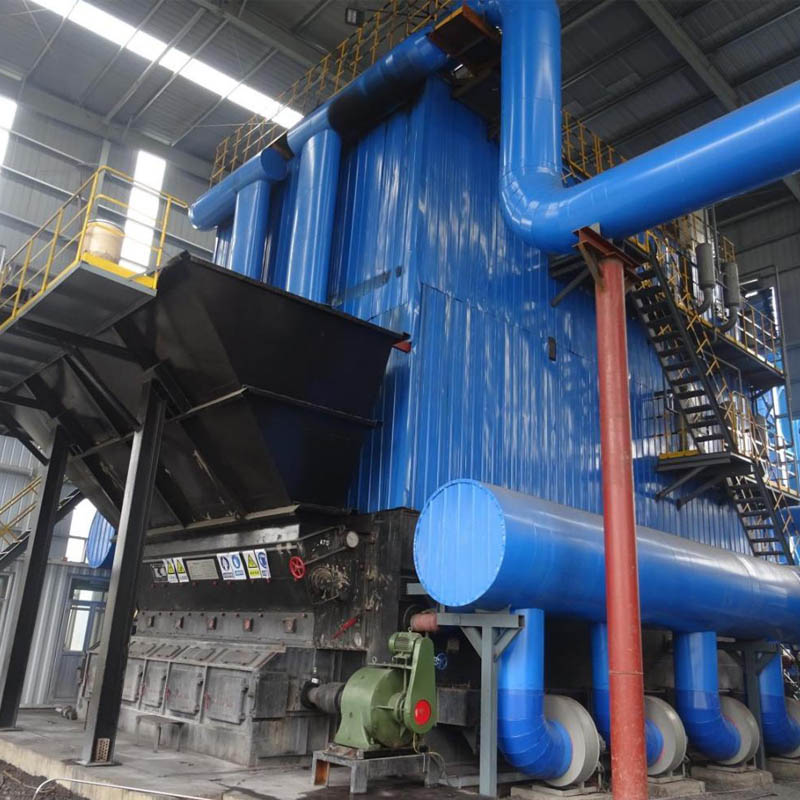
Oct . 05, 2024 01:23 Back to list
thermal oil boiler pdf
Understanding Thermal Oil Boilers Principles and Applications
Thermal oil boilers, also known as thermal fluid heaters, are specialized equipment designed to provide efficient heating through the use of thermal oil as a heat transfer medium. Unlike traditional steam boilers that utilize water, thermal oil boilers circulate heated oil to achieve desired temperatures, making them an ideal choice for various industrial applications. This article explores the principles of thermal oil boilers, their components, operational benefits, and common applications.
Principles of Thermal Oil Boilers
The fundamental operating principle of thermal oil boilers is based on the heating of a specially formulated thermal fluid (thermal oil) to a temperature higher than the boiling point of water, which allows for heat transfer without the risk of steam formation. The thermal oil is heated through a series of burners, typically fired with natural gas, propane, or biofuels. Once heated, the oil circulates through the system, transferring heat to process equipment, reactors, or other heat exchangers.
The key advantage of using thermal oil is its ability to maintain high temperatures at low pressures. This characteristic enhances safety and allows for efficient operation, particularly in applications requiring higher operating temperatures that exceed the limitations of conventional water-based systems.
Components of a Thermal Oil Boiler
A standard thermal oil boiler consists of several critical components
1. Burner The burner is responsible for generating heat through the combustion of fuel. It ensures that the thermal oil reaches the necessary temperature for optimal heat transfer.
2. Heat Exchanger This component facilitates the transfer of heat from the thermal oil to the process fluids or equipment. Different types of heat exchangers, such as shell-and-tube or plate-type exchangers, may be used depending on the application.
3. Thermal Oil Pump The pump circulates the heated thermal oil throughout the system, ensuring consistent temperature and efficient heat transfer.
4. Expansion Tank As thermal oil is heated, it expands. The expansion tank accommodates this increase in volume, maintaining system pressure and preventing damage.
5. Control System Most thermal oil boilers are equipped with sophisticated control systems that monitor temperature, pressure, and flow rates, allowing for automated operation and safety features.
Operational Benefits
Thermal oil boilers offer several operational advantages
thermal oil boiler pdf

- High Efficiency With their ability to operate at high temperatures without high pressure, thermal oil boilers are designed for efficient heat transfer, resulting in reduced fuel consumption and lower operational costs.
- Versatility These boilers can be utilized in diverse industries, including food processing, chemical manufacturing, plastics, textiles, and more. They provide consistent and controllable heating suitable for various production processes.
- Safety Operating at low pressures reduces the risk of explosions or failures associated with high-pressure steam systems. Additionally, thermal oil systems can be designed with multiple safety features to enhance operational security.
- Minimal Maintenance Thermal oil systems tend to require less maintenance compared to traditional boilers. The oil does not deteriorate or corrode as quickly, leading to longer service life and reduced downtime.
Common Applications
Thermal oil boilers are used across various sectors, including
- Chemical Processing For heating reactors, distillation columns, and other equipment that require precise temperature control.
- Food Industry Thermal oil heaters provide consistent heating for cooking, drying, and pasteurization processes.
- Plastics Manufacturing To heat extrusion processes and maintain consistent processing temperatures.
- Textiles Used in dyeing, finishing, and other processes that require controlled heating.
- Power Generation In certain geothermal and biomass-based applications, thermal oil systems can play a role in converting heat to electricity.
Conclusion
In conclusion, thermal oil boilers represent a vital component in modern industrial operations where efficient, controlled heating is paramount. Their operating principles, combined with a range of applications and benefits, solidify their importance across various sectors. As industries continue to seek energy-efficient solutions, the role of thermal oil boilers is likely to expand, contributing to enhanced productivity and sustainability in manufacturing processes. Investing in advanced thermal oil boiler technology can lead to significant operational advantages and a competitive edge in today's dynamic market.
-
High-Efficiency Commercial Oil Fired Steam Boiler for Industry
NewsJul.30,2025
-
High-Efficiency Biomass Fired Thermal Oil Boiler Solutions
NewsJul.30,2025
-
High Efficiency Gas Fired Thermal Oil Boiler for Industrial Heating
NewsJul.29,2025
-
High-Efficiency Gas Fired Hot Water Boiler for Sale – Reliable & Affordable
NewsJul.29,2025
-
High Efficiency Biomass Fired Hot Water Boiler for Industrial and Commercial Use
NewsJul.29,2025
-
High-Efficiency Biomass Fired Hot Water Boiler for Industrial Use
NewsJul.28,2025
Related PRODUCTS






















